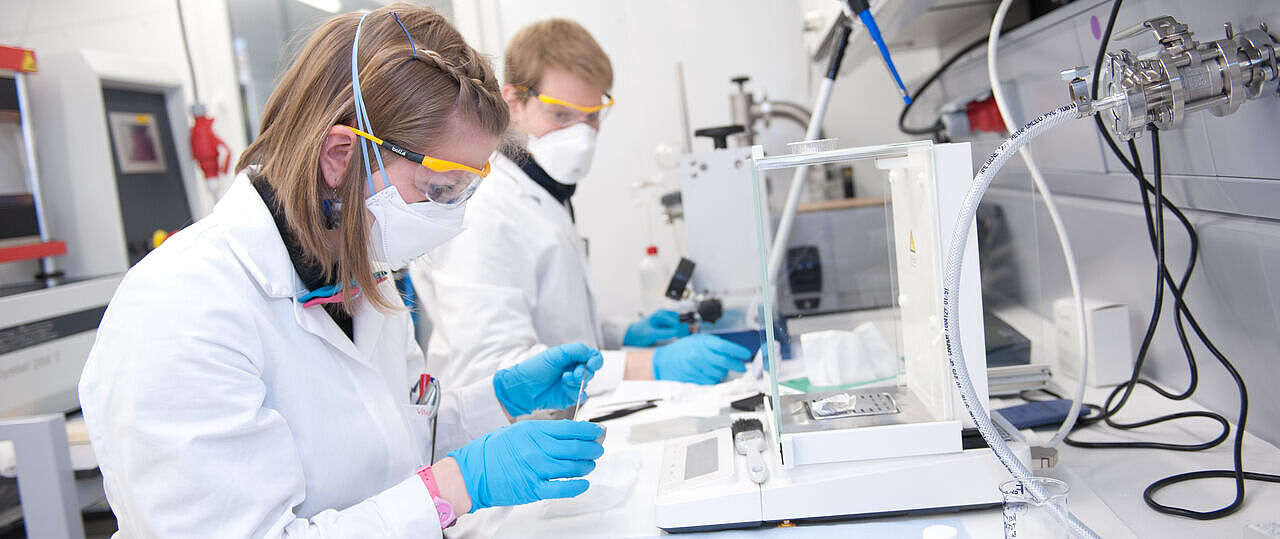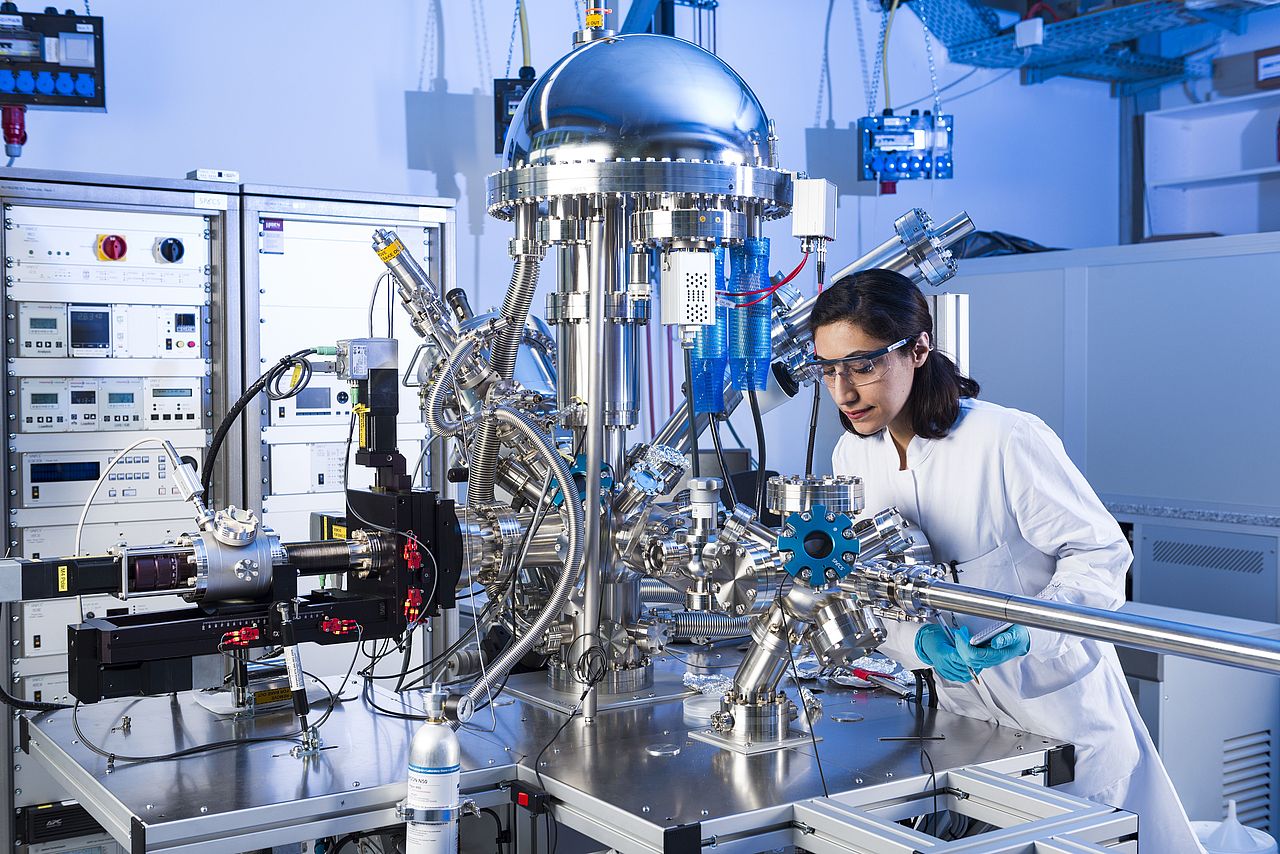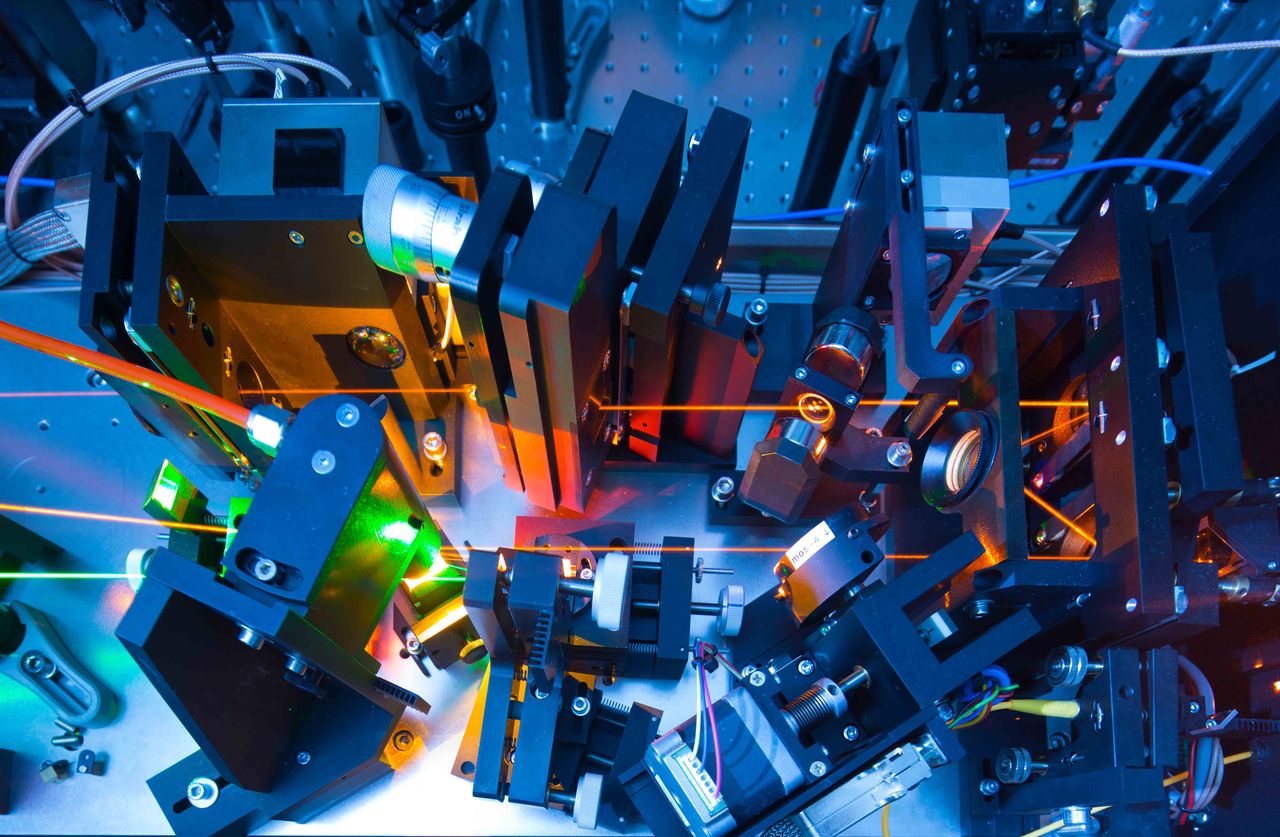Crossing Borders - Research at Ulm University

Ulm University is characterized by very dynamically developing research foci. These interdisciplinary foci are united by a common research interest in a superordinate topic.
Further criteria are:
- international visibility and networking,
- transdisciplinary and interdisciplinary collaborative research, and
- high third-party funding acquisition.
The research activities are also characterized by the high reputation of the scientists involved, cooperation with non-university research institutions and intensive promotion of young researchers.
The research fact sheets are currently in progress. Please find information in German on the German site.

Energy conversion and storage
In Science City Ulm partners from the university and industry-related research institutions optimize batteries and fuel cells for electro mobility and the energy transition - from basic research to pilot production.

Quantum sciences and technologies
Extremely fast quantum computers, tap-proof data transmission or highly sensitive sensors: quantum mechanical properties are fundamental for many technical systems of the future. At Ulm University, an interdisciplinary group is researching quantum-physical phenomena and always has the application in mind.

Transdisciplinary trauma sciences
The focus is both on research into and treatment of physical traumas, such as those that occur in serious traffic or work accidents. But psychological trauma - for example in war refugees, victims of violence or abused children - is also treated and researched in Ulm.

Molecular mechanisms of ageing
Everybody ages: but the underlying molecular processes are still largely misunderstood. In addition to genetic make-up, lifestyle and environmental influences also affect ageing. This complex interaction is being researched at Ulm University, as are age-associated diseases, especially tumour diseases and neurodegeneration.
Interdisciplinary Data Science and Artificial Intelligence
In the age of "Big Data", humans are surrounded by a vast amount of data. Data science helps to extract valuable information from it and make data-based decisions. Artificial intelligence is a particularly powerful tool.

Structure and Development Plan
Ulm University defines its goals in research and teaching in the structural and development plan.
German only
National Research Collaborations
Ulm University was successful in the excellence strategy and has acquired a cluster of excellence in the field of battery research. From January 2019, the Cluster of Excellence "Post Lithium Storage" (POLiS) will receive funding of around seven million euros per year.
At Ulm University five Collaborative Research Centres are currently funded by the DFG.
At Ulm University the following Research Units are funded by the DFG.
At Ulm University the Priority Programme "CRISPR-Cas functions beyond defence" is coordinated.
At Ulm University, about one hundred BMBF collaborative projects are funded. As an example successful projects under the overall coordination of Ulm University are listed.
International Research
The following scientists from Ulm University have been awarded with an ERC Grant.
Successful EU-Projects coordinated by Ulm University.
Early Career Programmes
Ulm University offers a variety of structured doctoral programmes.
Overview of the Emmy Noether Junior Research Groups
At Ulm University, the DFG funds the following Heisenberg Professorships.
At Ulm University, the BMBF funds the following Junior Research Group
Cooperations
Endowed Professorships
